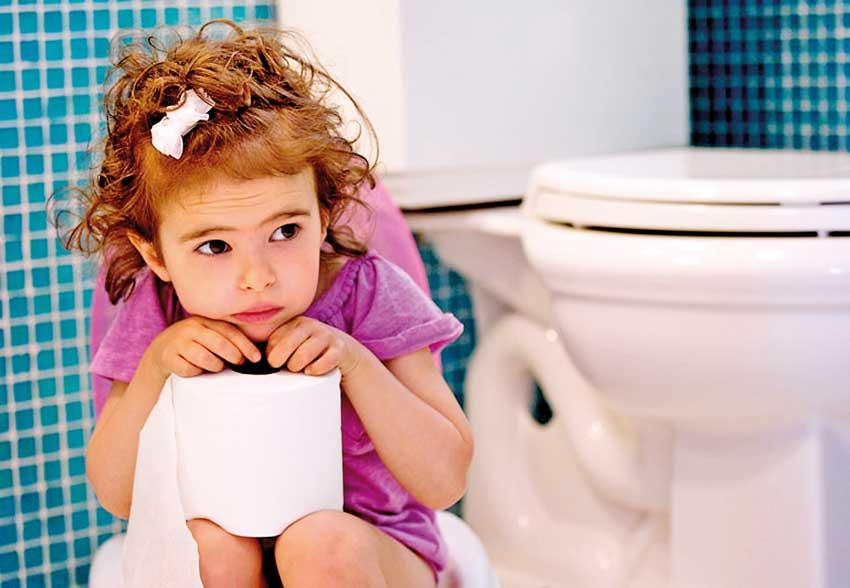30 Oct 2020 - {{hitsCtrl.values.hits}}

 Urinary tract infections (UTI) are a common malady encountered in children as well as adults. It is the cause of around 7-15% of the fever in children. Timely treatment of UTI is especially important because neglecting urinary infections in children may lead to kidney damage. Health Capsule consulted Dr.Maheshaka Wijayawardena, Consultant Paediatrician at Base Hospital, Wathupitiwala to obtain more information about this important topic.
Urinary tract infections (UTI) are a common malady encountered in children as well as adults. It is the cause of around 7-15% of the fever in children. Timely treatment of UTI is especially important because neglecting urinary infections in children may lead to kidney damage. Health Capsule consulted Dr.Maheshaka Wijayawardena, Consultant Paediatrician at Base Hospital, Wathupitiwala to obtain more information about this important topic.
What is a UTI?
Our urinary tract basically consists of the kidneys, the two ureters leading up to the bladder and the urethra. Bacteria can enter through the genitalia or rarely through blood and get colonised in the urinary tract. A UTI is diagnosed when there are a significant number of bacteria in the urine. About 80% of the time they are caused by a bacterium called Escherichia coli. They usually originate in the lower part of the digestive tract. In addition, they can rarely be caused by viruses and fungi invading the urinary tract.
Children who have an abnormality in the structure of their urinary tract are more prone to develop UTI, states Dr. Wijayawardena. In addition, children whose close relatives have had UTI’s are also more at risk of UTI, according to the Doctor. UTI are commonly seen in boys during the first 3 months of life, and become commoner in girls thereafter.
How does a UTI present?
Fever may be the only outward sign of UTI in a very young child. Therefore it’s imperative to suspect UTI in a child with fever and no focus of infection.Newborns with UTI can present with yellowing of skin and poor weight gain.Older children with UTI may complain of abdominal or flank pain, pain while passing urine, increased urinary frequency and can even present with recent onset bed-wetting.
Children with UTI can also present with a condition called haemorrhagic cystitis. This condition may alarm the parents as it causes blood to be passed with urine, causing red coloured urine. This is caused by an infection of the bladder by a virus and usually lasts for a short period of time. It is important to inquire about the urinary flow in all male infants. A condition called Posterior Urethral Valve, where there is a valve in the urethra causes poor urinary stream in male children.
Diagnosing UTI
In addition to a proper history and examination, urine investigations are essential to diagnose a UTI. A Urine Full Report, commonly known as UFR will tell us about the presence of pus cells as well as organisms in urine. A urine culture needs to be taken in every child suspected to have a UTI, as it gives an idea about the type and the amount of bacteria in urine as well as the most suitable antibiotics for the particular bacteria.Ideally, the culture should be taken before starting antibiotics as cultures taken after antibiotics can give false negative results. Blood investigations like Full Blood Count, C-Reactive Protein, assessing severity of infection and renal function tests, assessing possible kidney damage, can also be done, depending on the circumstances.As children who have previously undetected structural abnormalities in their urinary tract can commonly present with UTI, it is important to exclude structural abnormalities in every child presenting with UTI, stresses Dr.Wijayawardena. This can be done through imaging studies like Ultra Sound Scan Kidney Ureter and Bladder(USS KUB), Micturating Cystourethrogram as well as DMSA and DTPA scans, depending on the need of the individual child. Dr. Wijayawardena recommends that every child presenting with a UTI in our country undergoes USS at the least, to avoid a structural abnormality going undiagnosed.
Treatment of UTI
UTI’s are treated with antibiotics to eradicate the bacteria in urine. Duration of antibiotics will depend on the severity of infection. A febrile child with a UTI usually requires antibiotics for 10 days. Very ill children may even require Intravenous antibiotics, which can later be converted to oral. An afebrile child with a UTI can be managed on outpatient basis with appropriate antibiotics.
Some children who are suspected to have structural abnormalities and children with recurrent UTI may require longterm antibiotics even when the acute illness has settled.
Risk of Kidney damage due to UTI
Kidneys of children are immature and will continue to grow until they are around 5 years of age. Infections in the urinary tract, especially in kidneys, can cause damage to kidneys which will cause permanent scarring. This, in turn, can lead to hypertension and even kidney failure, later in life. Proper and timely treatment of a UTI can minimise the above risk, reassures the doctor.Children with kidney infection will therefore require further investigations and follow-up to assess possible kidney damage.
Prevention of UTI
Constipation is found to be a causative factor for UTI. Therefore ensuring that your child takes a fiber-rich diet with adequate fluid can reduce the risk of UTI. Some children show withholding behaviour especially when the washrooms aren’t to their liking, when staying away from home for long intervals. Prolonged withholding of urine is also a causative factor for UTI, cautions Dr. Wijayawardena.
Take Home MessageSuspecting UTI in a febrile child and starting early treatment will help in preventing longterm damage.. When you visit the doctor with a child who has been treated for UTI in the past, make sure to inform the doctor about the medical history.Excluding structural Abnormalities in all children presenting with UTI is important. The majority of children with UTI will have no longterm sequela and will make a full recovery.
Method of urine collection for Urine Culture
Wash the genital area of the child with soap and water. (Avoid using antibacterial soaps) Keep the lid of the container, given for collection of urine for culture, closed. Wait until the child starts passing urine and collect a mid stream sample until the bottle is about 2/3 full. Avoid touching the mouth of the bottle with genital area and other surfaces.Close the lid and deliver to the laboratory immediately.
21 Dec 2024 3 hours ago
21 Dec 2024 4 hours ago
21 Dec 2024 7 hours ago
21 Dec 2024 7 hours ago
21 Dec 2024 8 hours ago